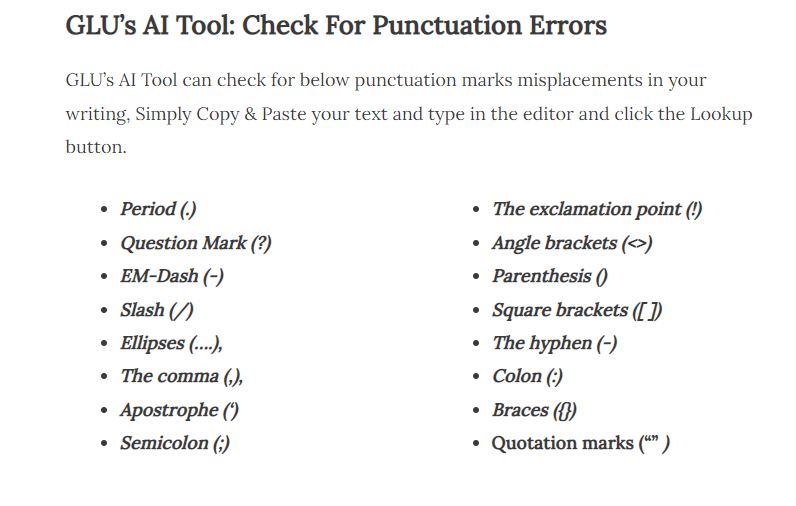Grammar in writing isn’t about avoiding errors but providing strength to sentences. Learning all the grammatical rules is necessary if you want to be a good writer.
Not only will it upgrade your writing skills, but it will also help shape productive text. A firm grip on grammatical aspects conveys the content with utmost clarity. Understanding the grammatical rules is vital for applying them to the content.
Writing is one of the easiest ways of showing your ideas to the world. It provides you with the self-assurance of bringing your thoughts into reality. Yet, the most unfortunate thing is when a reader fails to understand your sentences. That’s where the need for writing mechanics steps in.
What is mechanics in writing?
Have you ever wished to improve your writing skills as a content writer? You might confuse over where you should begin. Let’s start our venture with the basics. Writing mechanics make a piece of text precise and correct.

It brings an alignment in the content. Also, it focuses on correcting the spelling, punctuations, sentence structure, and everything that’s wrong.
These are the writing rules that every writer must follow while preparing reports. In this way, their research looks authentic, and they appear to be professional in the field. The ones who don’t mind writing mechanics get undesirable results. If the content looks clumsy, how would the reader get your message?
Research says that reporting without using writing mechanics is of no use at all. They’re the set standards but considering them is still a good idea.
Top 10 Writing mechanics: Are they worth it?
Even when we start learning the basics of writing, grammar is the very first tool that we’ve to get a command on. It is a language’s structure and tone.
Writing mechanics play a significant role in this cause. When you understand them, you’ll know the usage of words and how to put them within the report. We’ve appeared with the Topmost commonly used for a more detailing session. Read on to acknowledge them.
1. Capitalization:
Capitalization highlights all the vital details in a sentence. Be it a place or people, we’ve to capitalize them to notify the reader that we’re mentioning something important. Improper capitalization might not affect the meaning behind the word, but it can misalign the text. It gives a separate identity to every written paragraph and allows a smooth flow.
At first, the rules of writing capitalization appear simple. Every writer must know to capitalize the nouns and the first word of every sentence.
If we’re adding in any quotations as an example, then capitalization is a must as well. Usually, we don’t capitalize after a colon, but there might be exceptions. What can you do if you’re unsure whether something is a noun or not?

2. Punctuation:
Do you think punctuation isn’t worth learning in English writing? Every writer must know that writing is quite challenging to understand without punctuation. Using correct punctuation allows you to convey your ideas to the readers. Punctuation as a writing mechanic is to bring comprehension to a report.
For instance, the term ‘Let’s play, john’ and ‘let’s eat Fred’ doesn’t seem different. Yet, it affects the meaning of a sentence because of a comma.
Punctuation clarifies sentence structure by separating some texts and grouping others. It includes commas, semicolons, dashes, hyphens, apostrophes, quotation marks, and so much more.
A writer should consider all of them before switching their thoughts to a paper. It’s a tiny part of a sentence, but it is more impactful. They’ll get the message while extracting all the essential points out of it.
3. Parts of Speech:
If you’re a writer, you wouldn’t be unfamiliar with the parts of speech. Words are the vital elements of each sentence. Based on their functions, parts of speech classifies into eight categories.
These categories include nouns, adverbs, verbs, prepositions, adjectives, conjunction, and interjection. Knowing the difference between all of them is essential for effective communication. Learning the definitions is not necessary, but understanding and using them properly is the key. Let’s unfold the details together.
- Noun:
It is the easiest among all the other parts of speech. It refers to persons, things, places, animals, and events.
- Pronoun begins with a capital letter highlighting places, persons, or things.
- Verb: It refers to the state of being in an action of the subject. It is another central part of speech that provides completeness to a sentence.
- Adverb: It usually changes the verb and adjective. Often, it describes another verb.
- Adjective: This part of speech improves the existence of a noun or pronoun in a sentence. It adds more data about the size and quality.
- Conjunction: It makes each sentence interesting to read by connecting words, phrases, and clauses.
- Preposition refers to the words supporting a noun or a pronoun to show time, direction, and place.
- Interjection: It refers to the text showing some emotions.
4. Abbreviations:
To abbreviate is to lessen an existing word. It’s fine to use them, but there’s a series of rules for words to shorten. Ideally, readers aren’t familiar with it unless you’re going for a technical write-up.
The best way of using it is to add a full title first, followed by an abbreviation. After doing it, you can use only the acronym throughout. Try familiarizing your readers instead of leaving them to wonder what you mean.
5. Spellings:
No reader wants to read wrong spellings within the content, not selective. Improper spellings remove credibility and damage your reputation as a writer.
It might happen, but no one pays heed to it. As long as you provide a flawless piece of content with spelling errors, they’ll stick to it. The arrival of an automated writing tool allows checking up on any spelling mistakes. Yet, you can’t rely on spellers entirely; instead, you must be attentive as well.
6. Parts of sentences:
The parts of sentences show how writers shape sentences from smaller pieces. You might confuse parts of speech with sentences, but they both function differently. The position of sentences forms the basic vocabulary of grammar. It would be better for your writing career if you took some time off to learn and understand them.
There’re no such rules for sentence structuring. Writers can go with the flow without designing it, but they must meet the requirements. Sentences allow you to outshine your creativity. Parts of writing, including subjects, objects, clauses, and phrases helps clarify your sentences. Showing cordiality with creativity in paragraphs is a sign of a good writer.
7. Eliminating Repeated words:
Using synonyms and antonyms of similar words reduces continuity in sentences. Generally, repeating the exact words within the content isn’t pleasing to the eyes as well. It wouldn’t affect your goals but indeed upset a reader. Often, the audience reads written reports to enhance their vocabulary and English skills.
What if they get to read similar words twice or thrice? Will they find your text informative or productive? They won’t. Writers must remember this writing mechanic to bring uniqueness to their works. If you’ve no other choice, try to use them distantly so that it wouldn’t look crowded. .
8. Homophones and Homographs:
Beginner writers quickly get confused with this part of English speech. We’re referring to homophones, in which many words in English grammar sound and are spelled similarly. However, the meanings are utterly different. For instance, words like ‘there,’ ‘their,’ or ‘your,’ or ‘you’re’ seem similar. It sounds the like same but used in a completely different way.
On the other hand, we have homographs, the texts with exact spellings but different pronunciations and meanings. For instance, words like “lead” can be applied in two cases, one as a noun and another as a verb, in a different sense.
9. Subject-Verb agreement:
Most writers aren’t familiar with subject-verb agreement, especially the newbies. Knowing the right forms of the verb and then mixing them with the subjects makes your sentences understandable. It’s a creative practice, and only experienced writers command it. However, by this writing mechanics into their content, beginners can reach the highest level of professionalism. The subject must always relate to the verb in writing, so this writing rule makes your content amusing to read. Readers find the incorrect usage of verbs quite offensive.
10. Run-on sentences:
Often, it might just be an illusion that your sentences have followed proper writing mechanics. A run-on sentence occurs when independent clauses are misconnected. For instance, “I love to eat pies I would eat one every day if I got the chance.”
There’re two complete sentences combined in a single one. The writers, familiar with run-on sentences, must’ve got the absence of a comma between the sentences. It’s easy to miss it if you’re unaware of this writing mechanic. The only perfect way of spotting these errors is to understand them. Of course, you wouldn’t want your readers to judge you for such minor mistakes.
Pro tips for using Writing mechanics:
Now that you’ve already made up your mind regarding your next copy, we would suggest getting a hold on the following pointers.
- Significance of Writing mechanics:
Believe it r not, writing mechanics matter even in the texts and tweets. Let’s say you send in a blog post to a social side for consideration. Odds say that they’ll be going through a massive pile of submissions. If your report has multiple grammatical errors, it might end up in the trash. When trying to become a better version as a writer, it’s always helpful to strengthen punctuation, spelling, and grammar.
- Choosing the right words:
Every form of communication requires the proper choice of words. For this purpose, avoid using words that are unclear and difficult. Instead, opt for easier words with similar meanings. Depending on the terms you select, you’ll grab the audience’s attention right away, or bore them up, so choose your texts wisely.
- Writing Regularly:
The most efficient tip for improving your writing skills is regularly practicing them. Treat writing like a full-day job, take it seriously, and stay stick to one goal until you succeed.
- Reading consistently:
Professional writers suggest reading as much as possible. After all, can you write well if you haven’t done your research? Read biographies, mysteries, creative stories, science-fiction, and everything you’re interested in. Remember that reading is the key, regardless of whether it’s in your niche or not.
- Reviewing and revising:
In writing, you might assume that the finishing line is the completion of an article. However, revision is equally essential. Opt for effortless and less wordy paragraphs, the ones that readers efficiently finish within minutes. It is because preceding your content with hard-to-understand texts serves no real purpose. Writing involves a lot of revision to get it ready for publishing.
Final thoughts:
Just like a mechanic is someone whose job is to maintain and repair engines, especially for vehicles. He aims to make them flawless, so the user would comfortably travel in the long haul without any nuisance. Similar is in the case of writing mechanics.
Every reader wants to read without any inconvenience, but grammatical errors and other issues might distract. In this regard, the above-evaluated writing mechanics comes in handy. Not only would they make your report perfect, but they also help improve your writing skills. Not to forget, these are the writing rules that no writer can avoid in any case, or he’ll lose his credibility.
Wow what a wonderful explanation. Learnt a lot. Thank you so much.